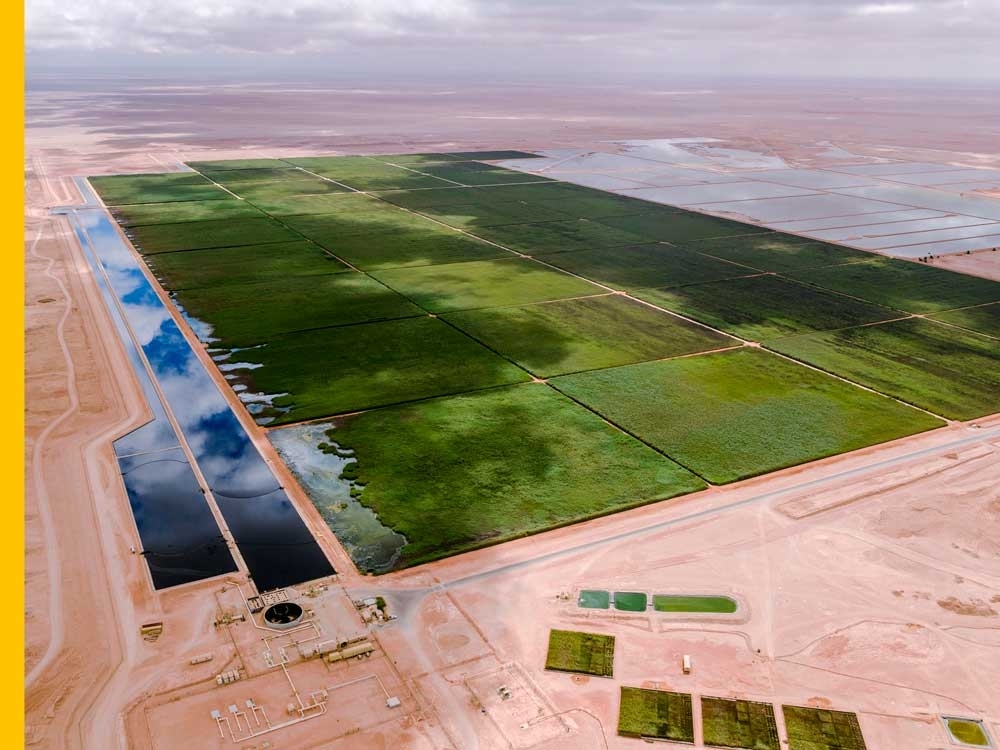

MUSCAT, DEC 18
Bauer Resources' subsidiary in Oman, Bauer Nimr, recently made waves at the 28th UN Climate Conference (COP28) in Dubai with the introduction of a groundbreaking wetland project aimed at combating carbon dioxide (CO2) emissions through nature-based solutions. The project was presented by Shahad al Zakwani, senior project engineer at Bauer Nimr, on the final day of the conference, garnering widespread attention and praise.
The wetland project by Bauer Nimr holds a prominent position in the global efforts to address climate change. Operating the world's largest commercial reed bed treatment plant system in Oman, spanning an awe-inspiring 13.5 sq km (equivalent to approximately 1,600 football fields), Bauer Nimr has successfully transformed a once barren desert landscape into a thriving oasis teeming with life.
What sets this green water treatment system apart is not only its massive size and remarkable cleaning capacity but also the new standards of sustainability it establishes. By utilising a gravity-flown wetland system to treat and reuse water, the need for energy-consuming pumping and injection processes is eliminated. This groundbreaking approach results in a significant reduction of over 225,000 tonnes of CO2 emissions annually, leading to its registration with the Global Carbon Council.
Furthermore, the Bauer Nimr wetland project has earned the prestigious Diamond Label for its positive ecological and social impact. In addition to being a major boon for the environment, the project has become a thriving ecosystem for a diverse range of wetland plants, attracting numerous species of birds and wildlife, restoring and enhancing biodiversity in the region.
Beyond the environmental benefits, the project's economic contributions are equally remarkable. By creating long-term employment opportunities, it is expected to foster economic development in the region for the next two decades. This dual focus on ecological and socio-economic sustainability has gained recognition and admiration from experts, politicians, journalists, consultants, and climate activists who attended COP28.
Since 2021, the project has been generating verified carbon credits in compliance with Corsia, the aviation industry's carbon offsetting and reduction scheme. This allows the carbon credits to be transacted in the voluntary market, further amplifying its positive impact and providing incentives for continued efforts until 2030.
Oman Observer is now on the WhatsApp channel. Click here



